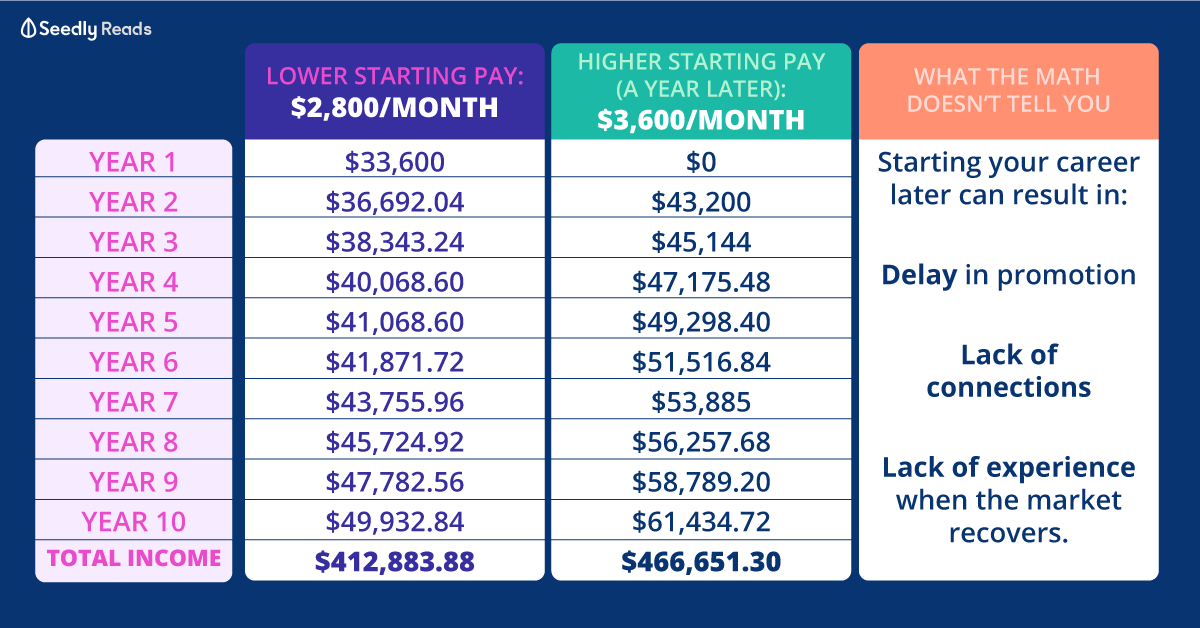Advertisement
Anonymous
Choose a job with acceptable salary with good work environment or a job with high salary with more stress? Is it okay to choose the 1st and cruise but still able to achieve FI?
Is a good work environment more important than high salary?
5
Discussion (5)
What are your thoughts?
Learn how to style your text
Chris cctzjd
30 Mar 2025
Own time own target at Self Employed
Reply
Save
Kent Toh
25 Mar 2025
Consultant at Sprinklr
It is ok to cruise.
But try not to do that at your first or second job.
Indeed a good working environment has greater sustainability, but one cannot get a higher salary without going through shit.
Reply
Save
What about growth opportunities?...
Read 3 other comments with a Seedly account
You will also enjoy exclusive benefits and get access to members only features.
Sign up or login with an email here
Write your thoughts
Related Articles
Related Posts
Related Posts
Advertisement










To each his own